Please Don’t Call Us Heroes

Kids who've vanquished cancer just want to leave it behind
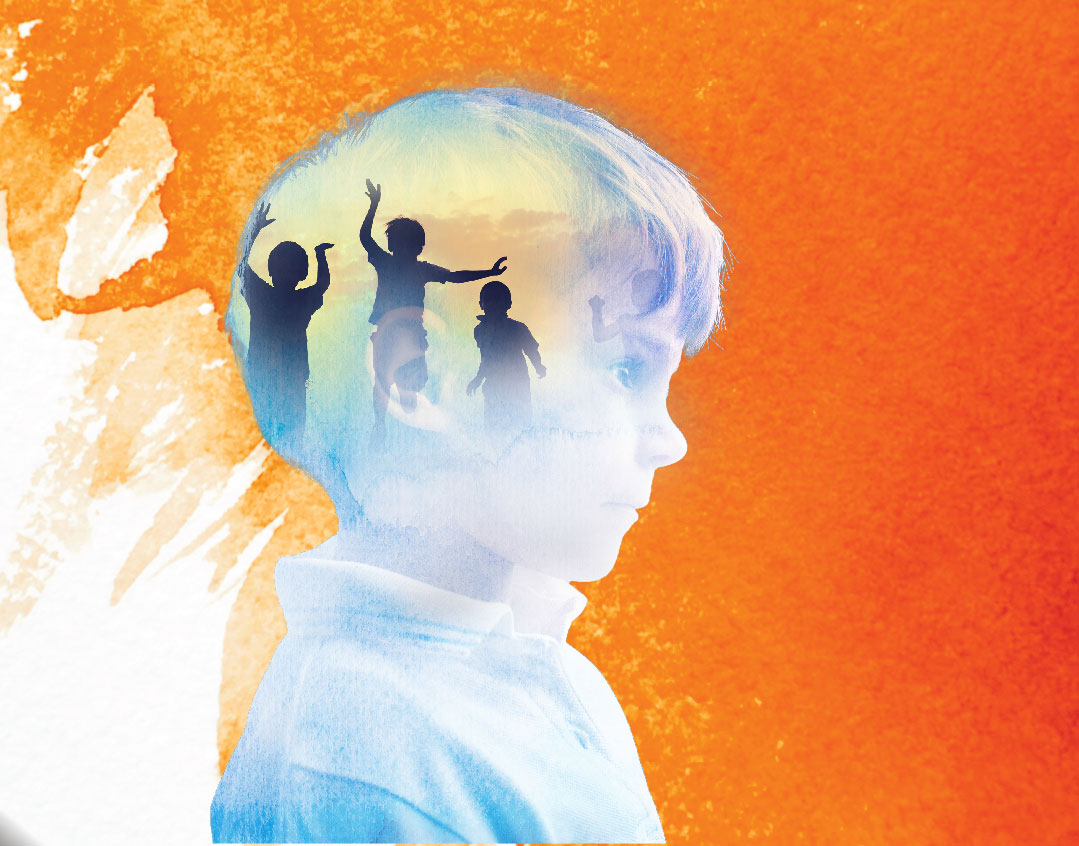
When Motty Reicher of Spring Valley suited up for the Bike4Chai bike-a-thon five years ago to raise funds for Chai Lifeline, he never imagined that within the year, his own teenage son would need the services of the organization he was pedaling away for.
This summer, Mr. Reicher again donned the ubiquitous blue and yellow jersey for the 100-mile route and raised the requisite minimum $5,000, but this time it wasn’t just a tzedakah drive. It was a ride of thanksgiving.
Because after a harrowing few years of surgeries and chemo treatments, tears and prayers and unchartered reserves of emunah and bitachon, Pinchas Reicher is now cancer-free.
I met Pinchas and his father earlier this year in Jerusalem, as part of a “graduation” group trip sponsored by Chai Lifeline, whose services provide emotional, social, and financial assistance to families and young patients with life-threatening or lifelong illnesses. For the 12 teens and parents on the tour, it was really a celebration of life, health, and reentry back into the world of “normal” — a culmination of months and years of chemotherapy, radiation, surgeries, as well as the loneliness and isolation that’s part of the overwhelming cancer journey in their battle for survival.
As the world in general had been living for months with the fear of deadly germs lurking at every corner, and as we’re all hoping that the worst is behind us and we’ll be able to shift back into a new normal and routine without sirens in the background and the constant dread of loss, these voices can give us a new perspective: how to transition from the catastrophic to the mundane, all the while realizing how fragile life really it. Because while teenage cancer often sidelines social relationships and academic achievement, frustrates the increased natural desire for autonomy from parents, and is fraught with fear of the unknown — making the already excruciating process of treatment even more complicated — these kids have kept their eye on the ball, pushing forward toward health without getting derailed by self-pity and hopelessness.
I’ll Get Through This
But call them heroes and they cringe. “You just want to get on with your treatment and return to being like everyone else,” says Pinchas. “I don’t know if I would call that heroic.” Five years ago, the devastating diagnosis hit Pinchas just as he was about to begin his new future entering mesivta. “Around Pesach time when I was in eighth grade, I saw this bump on my leg, but I didn’t think about showing it to anyone,” Pinchas remembers. “But after Shavuos it became a protrusion and my parents took me to the doctor. I couldn’t imagine anything serious, but when my doctor called in another doctor and I looked at their faces, I got really scared. They sent me for an ultrasound and X-ray, and I saw the forms: cancer and blood disorder testing. Then I really started to panic — but what did I know about cancer, except that your hair falls out?”
Pinchas had always been an active kid and a bit of a celebrity on the basketball court. But the first consultant they were sent to at a nearby medical center, a young, brash fellow, looked at him and said, “Basketball? You’re lucky if you’ll ever be able to walk again. We don’t even know if we can save your leg.”
“We knew nothing about how to navigate this,” says Motty Reicher, Pinchas’s father, “but some others thought they did. Some people, as soon as they hear about someone being diagnosed with cancer, immediately rush to Google and become experts. Then comes the advice, well-meaning as it is. But no two patients are guaranteed the same outcome, the same side effects, or anything else besides being on the same protocol, so it wasn’t really helpful to hear about medical suggestions or miracle cures.”
With all the confusion, the Reichers reached out to Chai Lifeline, who told them to get other opinions and arranged consults at Columbia and Sloan-Kettering.
While the family decided on Sloan, “we beat a path to the holy kevarim and davened our hearts out. It was a time of dark clouds and fog, but somehow we found a lifeline. You know,” says Mr. Reicher, “Avraham Fried came to sing to our group, and I mentioned to him that our ordeal started around the time his song ‘Ribon Haolamim Yadati’ came out. I told him, ‘I’ve been living with this song for the past five years.’ Recently I was driving with my family and the song was playing, and one of my kids said, ‘This is the song Tatty would sing when he cried into the coffee every morning.’”
A chemo and surgery protocol, and then a year-plus of external fixation — a surgical procedure in which rods are screwed into bone and attached to a stabilizing structure outside the body in order to make bone grow back — meant that Pinchas spent the better part of high school in and out of hospitals, on crutches, or in a wheelchair.
“I didn’t exactly understand what I’d have to go through,” he says. “All you know is that you just want to get through whatever the treatment is and get on with your life. You just don’t think about bad alternatives. It was more like, ‘I’m going to get through this and live a normal life.’”
He credits his father with maintaining the positive attitude that pervaded their home from the get-go.
“I knew that if I was going to fold, my family was going to fold,” relates Mr. Reicher, who says it was bashert that exactly at the time of his son’s diagnosis, his job was being phased out due to his company’s restructuring, and he was left with a year’s salary in his pocket and lots of free time to become his son’s primary caregiver.
“I’m a believer in positive thinking, and that’s just what we did,” he affirms. “As soon as they removed the tumor, I said, ‘We’re not saying the word cancer in this house again.’ I told Pinchas, ‘Now your chemo is only preventative. Now you’re cancer-free. Five years down the line, and the chances of relapse are just as slim as getting the disease the first time around.’ Our family built on this kind of thinking, because otherwise we’d sink into the dark places.”
It wasn’t just unrealistic, wishful thinking. The last 15–20 years have seen great strides in cure rates of childhood and young adult cancers, and today, with more targeted drugs, immunotherapies, and cellular therapies, many of these cancers are curable. (While all cancers present differently, acute lymphocytic leukemia, for example, one of the most common childhood cancers. now has a five-year survival rate at about 90%. For childhood cancers, passing the five-year mark is generally a prognosis for ongoing health.)
Still, there were many days when Motty Reicher couldn’t believe he was actually in an oncology ward. “I’m not the type of person who lives in worry and fear — I see clearly how Hashem runs the world and that He’s carrying the heavy sacks that are too crushing for my shoulders — but sometimes I’d catch myself and say, ‘What am I doing here? I don’t belong in this place. This can’t be happening to me and my family.’ It’s a club no one wants to join, that you become a part of against your will,” he admits, “and no one on the outside knows the password or understands the language.”
The main thing a parent needs from the “outside,” says Reicher, “is support — technical, emotional, and many times, financial as well. You cannot imagine the comfort we received from people who kept telling us that they were davening for my son.”
Yet throughout the times of fear, panic, and dread, Reicher made sure to take the advice of Monsey posek Rav Yisroel Dovid Schlesinger, who asked to meet with Pinchas before beginning chemotherapy.
“The Rav told him about a Yid who once called Rav Avigdor Miller before Rosh Hashanah, asking what he could do to be zocheh in din,” says Reicher. “Rav Miller told him, ‘You need to smile.’ Because, explained Rav Schlesinger, when Hashem puts you through a tzarah and you smile through it, you show the world that there’s Someone above who’s taking care. The Rav told Pinchas, ‘I want you to take a notebook and write down how many times you smile. True, there will be days when you’ll cry, but afterward, don’t forget to smile.’”
Hold It Together
Dr. Michele Kalt, a cardiologist in Beverly Hills, California, and assistant professor of medicine at UCLA School of Medicine, didn’t hear those words from Rav Schlesinger, but she’s been living them for the past decade, ever since her daughter Sienna was diagnosed with a cancerous tumor in her thigh at age six.
“As both a mother of a survivor and a physician, I’m often called by Chai Lifeline when there’s a new parent with a child facing a terrible diagnosis,” says Dr. Kalt. “It just breaks my heart to meet parents confronting this frightening scenario, so I take a deep breath — and one of the things I tell these newly-inducted moms is to never go to the dark places, because it doesn’t do any good, not for them or their child.
“The other thing I tell the moms is that ‘you have other children and if they see you drowning, they’ll drown too. So even if you cry into your pillow at night, you have to pull yourself together no matter what — that’s your job now, to hold it together for the others in your family. You’ve got to keep it together in front of your kids — especially your sick kid, but your other kids too.”
Sienna remembers being an active six-year-old, suddenly felled by intense pain and mass the size of baseball in her thigh area. “A scan showed that it was cancer, but when my parents broke it to me at the insistence of my surgeon, I was so young I didn’t really understand what they were talking about.”
The mass was removed, but reappeared a month later, and when it came back a third time, the doctors also removed a lot of the thigh muscle to prevent another recurrence.
“Baruch Hashem, I didn’t lose my leg,” Sienna, 16, says, “but since they removed so much tissue, I was never really able to run or be active again. For years, I couldn’t even sit — I could either just stand or lie down, and I wound up with chronic pain in my leg. There’s no real treatment for it, so I basically try to find things that help get me out of pain a little. I’m essentially in pain 24/7 — and of course there’s always that underlying fear that it could come back.”
For years, Sienna has been spending her summers at Chai Lifeline’s Camp Simcha, and the relationships forged there have taught Dr. Kalt the difference in how kids and their parents navigate the challenge and trauma.
“There’s a club of these kids who can relate to each other on such a deep level, who are always there for each other no matter what,” says Dr. Kalt. “So although we didn’t ask for cancer, it came, but it didn’t come alone. It came with so much support, so much love, so much family we never knew we needed — the best gift we never would have asked for.
“Every night when I go in to kiss Sienna goodnight, she’s always on the phone with someone from Camp Simcha or Chai Lifeline, from somewhere around the world. Now, Sienna has a young little friend from camp who tragically has a terminal prognosis, and I’ve become friends with her mother. We were talking about a pain pump and various procedures, and I relayed our conversation to Sienna. She said, ‘Mom, we never talk about those things!” I said, ‘So what do you talk about?’ ‘Fun things, you know…’
“So what I learned was that the girls give each other something different than what we parents give each other. We, of course, are realistic, but our kids just want to be kids. These children never define themselves as victims, at least not to us. They don’t wear pity on their sleeves — to us at least they want to be strong and normal. We’re the ones pulling the cancer part, not them. We treat them like crystal, but they just want to be regular kids.”
Sienna was just a little girl when she was diagnosed, and although she had to be taken out of school for long stretches, her ever-resourceful mother didn’t want her to feel like a nebach who had to be pitied. “I wanted her to feel okay with herself, so believe it or not, I looked for ways to make cancer ‘fun.’ We’d do a 24-hour party, we’d have kids come with sleeping bags, we’d get a sponsor for ice cream, have gymnastics display, things like that. We once did a whole town-wide event with the mayor, for the entire city. Families of cancer patients marched together wearing specially printed shirts, firemen gave them a lei… There were people who told me, ‘Michele, I never told anyone I had cancer, but now I feel proud to be part of this group.’”
Dr. Kalt’s son was a teenager when Sienna was diagnosed, and she once asked him, “How did you feel about it? How did it change you?” He told her, “Mommy, you made cancer so much fun that I have no bad memories of it.”
Gift of Normal
Shaul Niyazov of Brooklyn can sort of relate to that. Not that his cancer was “fun,” but he always tried to make light of his very serious diagnosis at age 13, and today, four years later, he still tries to relate with humor and a cavalier nonchalance.
Shaul, a student at DRS yeshivah high school in Woodmere, was diagnosed with a medulloblastoma, a high-grade fast-growing brain tumor (which is fortunately often responsive to radiation and chemotherapy), although he says with a shrug, “I wouldn’t call my story too dramatic.”
It started with a bad case of the hiccups (“that was really weird”) and then severe diarrhea, which he attributed to a stomach virus. But when that was followed by dehydration and headaches, his grandparents, who he lives with, insisted on a CAT scan.
“They said it was either an infection or a tumor,” Shaul recounts. “Turns out it wasn’t an infection. And it was malignant. A big blob, the size of an egg. It was Erev Pesach, but they said surgery couldn’t be delayed even for a day. I looked it up. People with my diagnosis don’t have such a great survival rate — I tried not to think about that too much and just move on with the treatment.”
“The prognosis was very bad,” says Shaul’s grandfather, Nicholai, a soft-spoken Russian immigrant whose words are punctuated with gratitude and no little wonder. “But Hashem sent us a surgeon with golden hands. We were warned of common side effects: blindness, hearing and speech impairment, cognitive decline — but none of that happened.”
While Shaul isn’t one for drama in recounting the protocols with their accompanying fears and risks, Nicholai relates what happened on the first day of radiation at a proton center in New Jersey.
“First they have to set up the machine, and then they have to make seven tiny tattoos in the body,” Nicholai relates. “But Shaul refused. They told him, ‘Look, these are practically invisible, and without the tattoos we can’t continue.’ Meanwhile people are waiting in line outside, and Shaul is crying because they want to give him a tattoo. So they call me in, tell me it’s a matter of survival, and besides, it’s so small no one will ever see it. I told them I’d call my rabbi. I called three rabbis, from school and our shul, and they all told us to find an alternative. Finally, the radiologist comes in and says, ‘What’s the problem? Just take a permanent marker, put transparent tape over it, and don’t get the area wet.’
Four years later, Shaul is cancer-free with no apparent lingering side-effects, but in a candid moment, he admits that the gift of recovery comes with its own challenges. “After being sick for so long, going back into regular life is a big responsibility, and sort of scary,” he says. “When you’re sick, you’re like a crystal bowl. Everyone is watching you, caring for you, pampering you. Recovery is like being pushed into the ocean and having to swim. It’s the gift of normal problems.”
A TIME TO SPEAK, A TIME TO BE SILENT
It’s probably not helpful to tell the parent of a cancer patient, “G-d only tests those He loves, so He obviously really loves you,” or “I have some great medical advice for you,” or, “My friend’s cousin had a similar diagnosis and he insisted alternative therapy healed him.” But what about the teens themselves? What are the words they need to hear, the kind of comfort only friends can give?
WHAT’S THE MOST IMPORTANT THING THAT A FRIEND OF AN ADOLESCENT DIAGNOSED WITH CANCER SHOULD KNOW?
Don’t be afraid to approach them, don’t ignore them even if it’s awkward, and be patient and understand that they’re not always up for company — not because they’re not interested in you, but they might be in pain or exhausted and just can’t. Also, act totally normal and don’t start talking to them like they’re mentally ill, ‘cuz they’re not! — Pinchas
If you have a friend who’s diagnosed, the most important thing to tell them is that you’ll be there for them — and actually be there for them, visit them, and text them. Try to make sure they don’t feel so alone, because cancer can be very lonely. —Sienna
WHAT SHOULD YOU NEVER SAY TO A CANCER PATIENT?
The worst thing people do is make the kid feel like he’s a “case” — for example, “he can have ice cream because he’s special.” No one wants to be different than their peers, and it’s really annoying that I’m treated like a king, not because I achieved something, but because I became sick with a life-threatening disease. Another thing is showing a sad, depressed face. It reminds them of what they already know, and they don’t need a visitor to signal to them that something is bad. It’s discouraging at best and depressing at worst. Another thing that I hated was when I would want to have a normal conversation with someone I knew, and all of a sudden, they became very still and nervous like I had the Plague. The thing I wanted most was to just be normal. —Shaul
Never say that you knew someone who had cancer and died. You won’t believe how many times people say that. Also, don’t tell them that they are an inspiration because they’re just dealing with this the best way they can and they have no choice but to fight. So they’re not being an inspiration — they’re just doing what anyone would do.
— Sienna
WHAT WAS THE HARDEST PART OF GOING THROUGH YOUR TREATMENT?
Physically it was horrible. I was bound to a wheelchair all the time and could hardly do anything other than sit there and sleep. I was very out of it, and I don’t remember a lot of it, other than being totally miserable and vomiting. Another hard part was knowing that the rest of the world was out there having fun and going on with life and school, while my life was put on hold for a full year, most of that time being stuck in the hospital, and having zero control over anything. —Pinchas
The hardest part of going through treatment is that while you’re stuck in the hospital everyone is out having fun and doing things that you can’t do. —Sienna
WHAT WERE THE THINGS YOU APPRECIATED MOST FROM YOUR FRIENDS?
I loved when they came to visit me in my house, and they told me what was going on in school… It was good to laugh and feel like a teenager again, even for a short while. I was very chilled about the whole situation, so automatically my friends were and they acted so normal around me. —Pinchas
I appreciated my friends visiting me, being real with me and not being afraid to talk to me because they thought I was too fragile. What was upsetting were the times people just stopped coming to visit and stopped talking, because you’re in the hospital and people think they have to treat you differently because you’re sick. —Sienna
My entire grade in DRS really helped me through the process. Even kids I didn’t know came to my house to visit and talk with me, just schmooze about the typical things we’d talk about in school. It really helped me through the treatments. Another really special thing was that the entire class — some of whom I didn’t even know — chipped in and bought me a new Nintendo 3DS XL for my birthday. It was a great gift, really killed my boredom in the hospital. All I can say is, you guys were great — thank you DRS Class of 2019! —Shaul
(Originally featured in Mishpacha, Issue 834)
Oops! We could not locate your form.



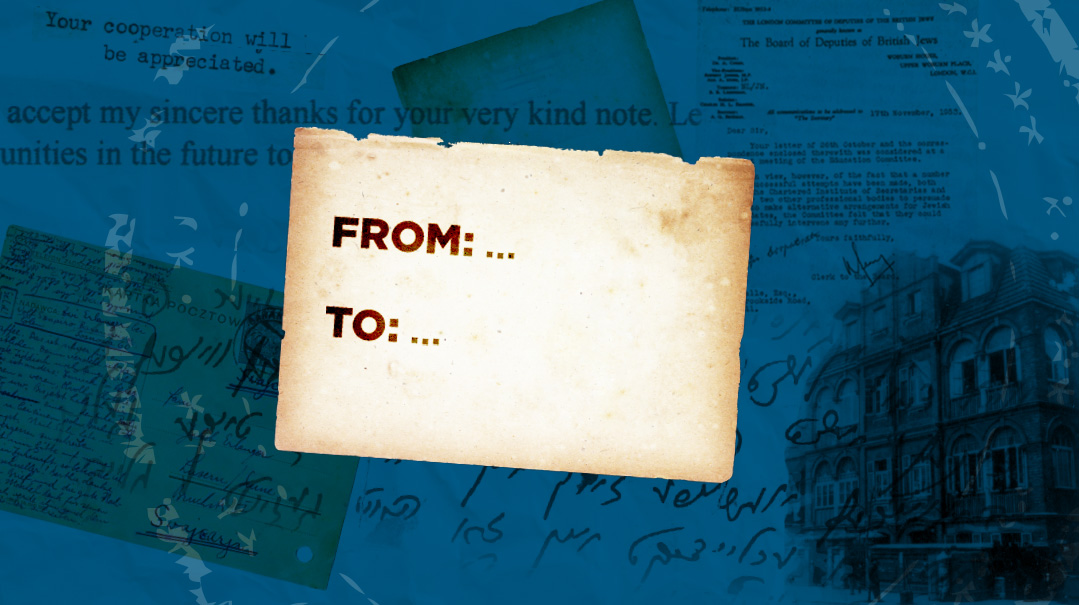
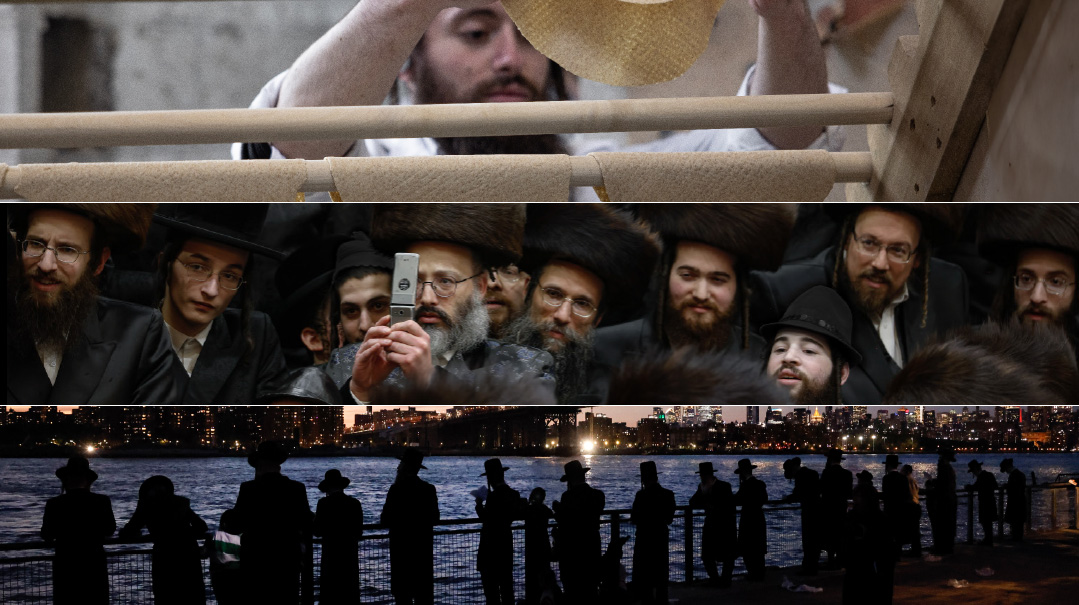
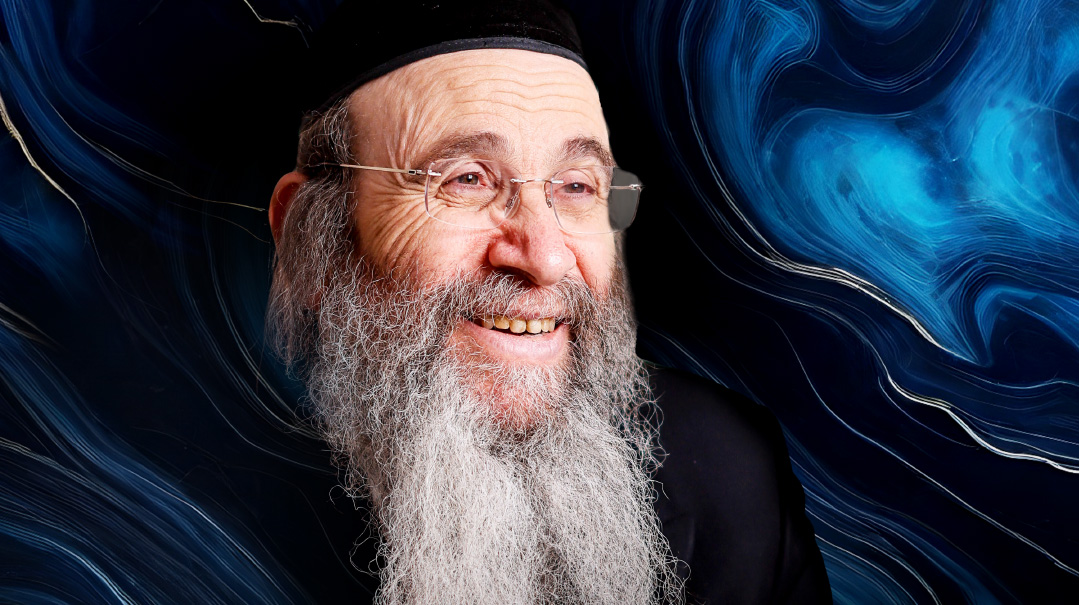
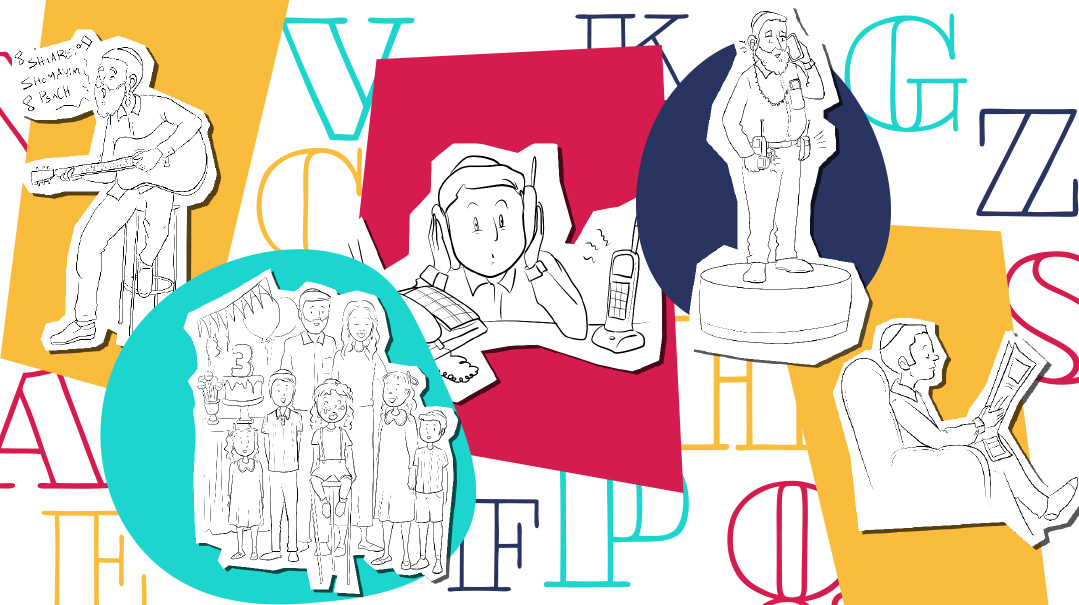

Comments (1)